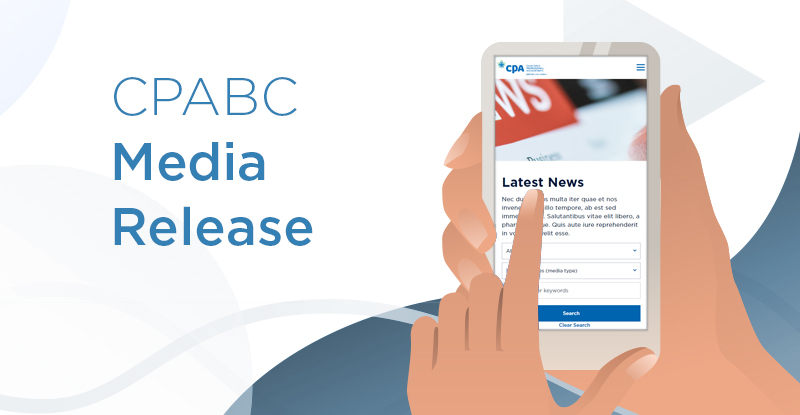
In our podcast episode, CPABC's Aaron Aerts, economist, discusses with Vivian Tse, manager, communications, CPABC's 2022-2023 Budget Submission. Part of our Coffee Chats with CPABC podcast series.
CPABC’s 2022-2023 Budget Submission recommends the province focus on tax and program reform to improve our province’s productivity.
CPABC’s recent budget submission comes at a time when British Columbians are endeavouring to boost our economic recovery while still navigating out of the COVID-19 pandemic. As a result of normal economic and social activity grinding to a halt starting in March of 2020, Canadian and BC real GDP declined by 5.3% and 3.8% that year, respectively.
However, since the low point in mid-2020, BC’s economy has experienced a strong rebound. In fact, BC’s unemployment rate went from 13.4% in May 2020 down to 6.2% in August 2021. In addition, our province’s real GDP is forecasted to exceed pre-pandemic levels by the second half of 2021. The recovery has been strengthened by a historic level of fiscal stimulus from both the provincial and federal governments. As a result, our provincial net debt-to-GDP is forecast to increase from 15.0% in FY2019/20 to 26.9% in FY2023/24.
While this debt supported displaced workers and businesses, the fiscal and economic situation led Fitch and S&P to downgrade BC’s Triple-A credit rating to AA+.1 The credit downgrade will increase debt servicing costs and sustained deficit spending could further erode our credit rating. For that reason, CPABC strongly supports the BC government’s objective to return to balanced budgets in the medium-term, and recommends the province also create a strategy to begin reducing its debt as a percentage of GDP once that balance is reached.
Given these challenges, it is important to find cost-effective measures to improve our economic growth trajectory, help businesses recover, bolster the government’s fiscal situation, and rebuild our credit rating. Reducing the complexity around taxation and accessing government programs (such as government tax incentives, financing or grants available for businesses) can help achieve this.
Regulatory complexity has been identified as a deterrent for business investment and a hindrance on productivity. Nearly half of CPAs surveyed (47%) identified the regulatory environment as a major challenge to business success in 2021.2 For instance, nearly two-thirds (60%) of BC CPAs believe that most provincial programs are not readily accessible for SMEs without professional expertise, such as a CPA.3
Echoing our members’ feedback, CPABC recommends the province focus on reforming BC’s tax system. By focusing on ways to modernize our tax system and improve access to programs for SMEs, the government can set the province up to emerge out of the pandemic with renewed economic strength. To achieve this reform, CPABC recommends the province look at it through a short and long-term lens:
Shorter-term recommendations:
-
Review available provincial programs for business owners to consolidate and simplify them to improve accessibility for small and medium-sized businesses.
-
Review and implement the recommendations collected from CPAs to modernize BC’s tax system (see Appendix 1 in CPABC’s Budget Submission for more details).
-
Conduct a public, online consultation on our tax system for direct feedback from relevant stakeholders to identify areas where we can reduce complexity, reflect our changing economy, and synchronize with other jurisdictions.
Longer-term recommendations:
-
Create a costed plan to return to balanced budgets by FY2028/29 to FY2030/31, including a strategy to gradually reduce net debt as a percentage of GDP.
-
Introduce a broad, value-added tax aligned with other jurisdictions.
As we continue our economic recovery, CPABC will continue to engage the BC government and provide the perspectives of CPAs across the province on these important issues.
Aaron Aerts is CPABC’s economist
1 BC Government, Provincial credit ratings
2 CPABC BC Check-Up Survey, conducted July and August 2021, n=889.
3 CPABC Budget Submission Survey, conducted August 2021, n=187.



